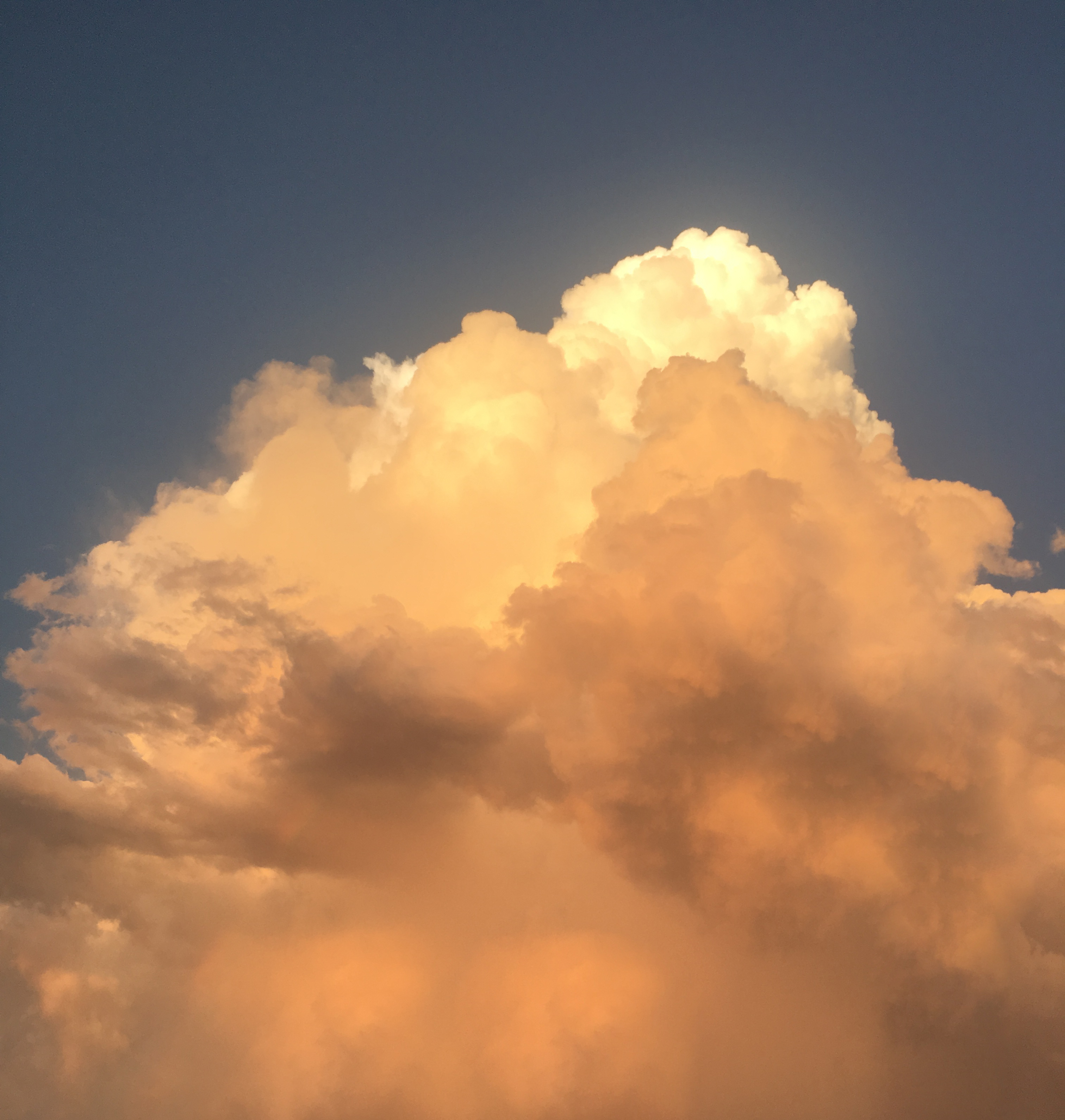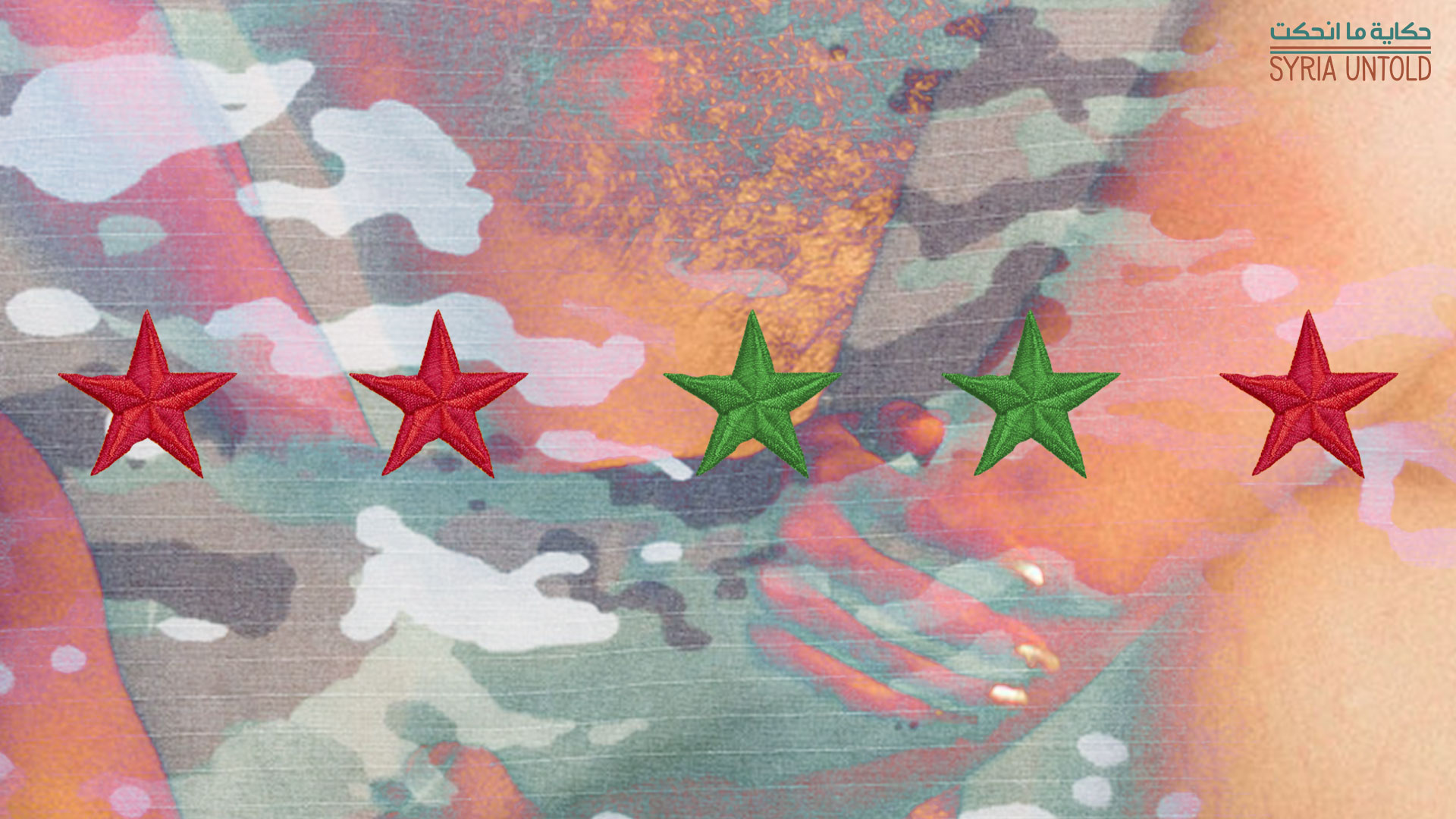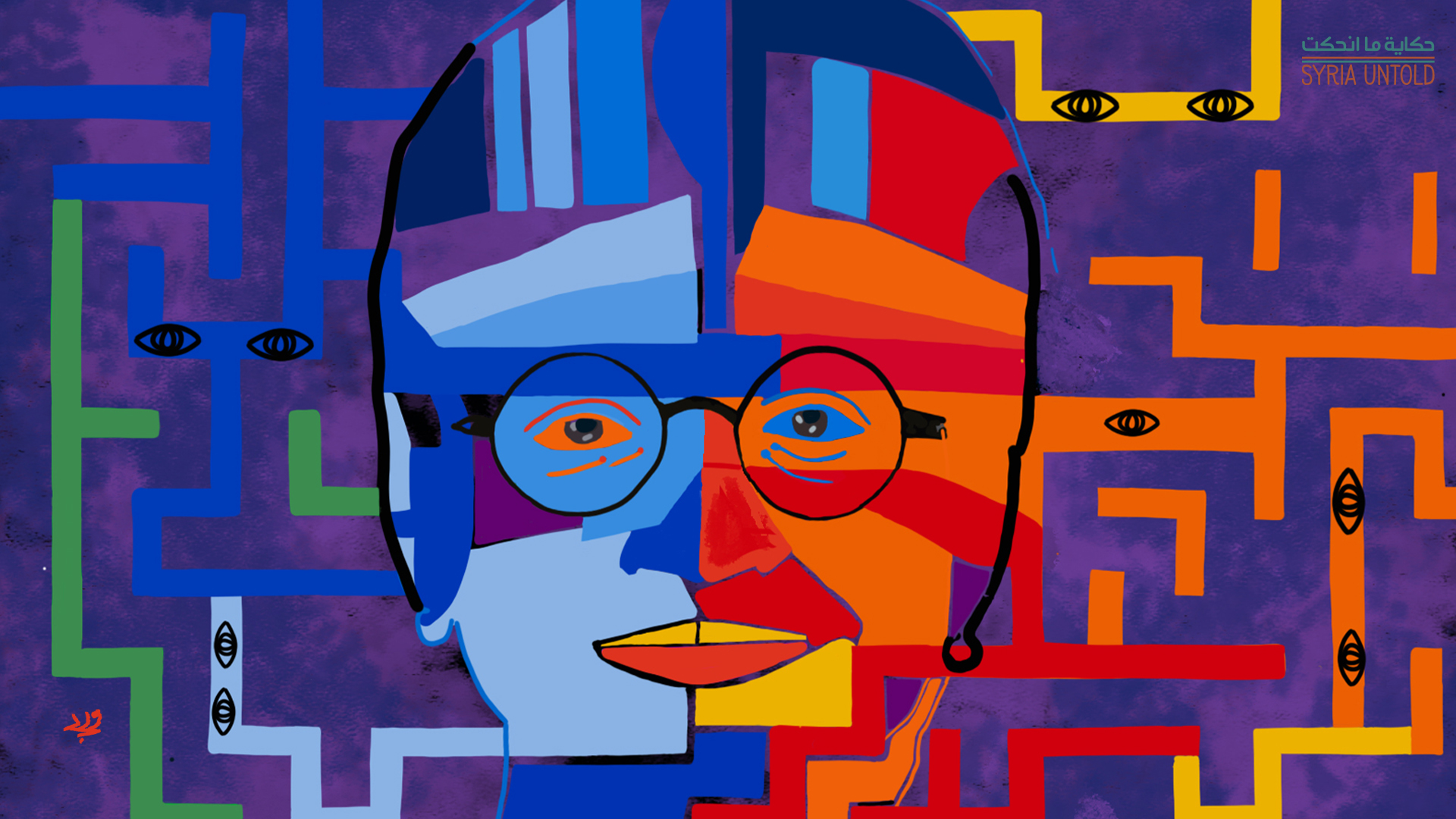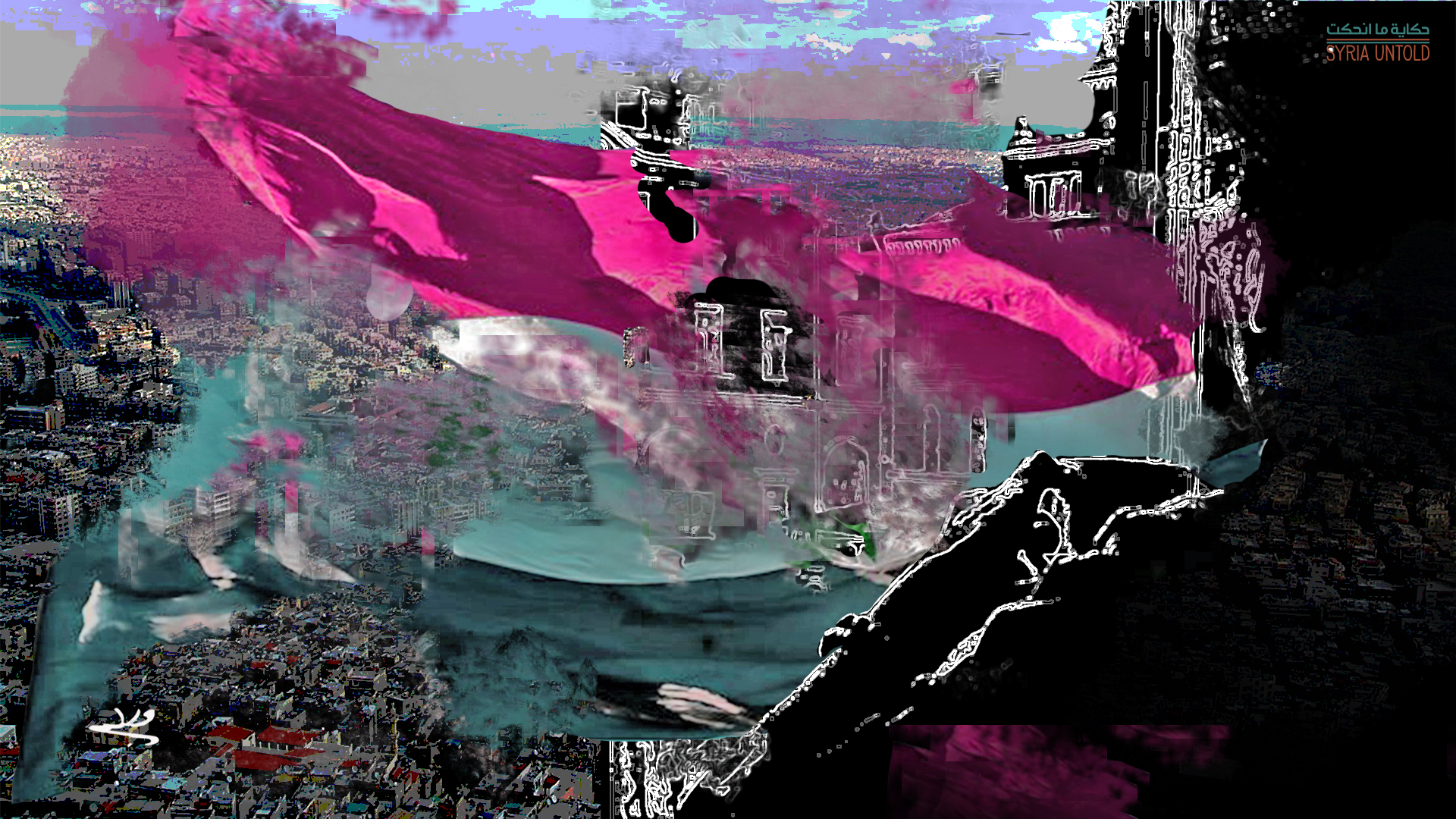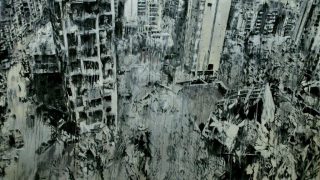This piece is part of our series on LGBTIQ Syria, guest edited by Fadi Saleh and published with funding from Hannchen-Mehrzweck-Stiftung.
Remembering
In late 2010, right before a beautiful and heartbreaking revolution erupted, I was struggling with a few things: my hair, the Syrian baccalaureate and coming to terms with my queerness. My hair was curly, frizzy and not in line with my loving grandmother’s standards of chic. I kept it short as I became fed up with the countless passive aggressive comments from many relatives. I had been feeling queer for a while. I felt different, and it showed. Of course, it caused bullying, and I remember teaching myself how to change minor things to make me look like more of a “man”. Things like the way I walked, the tone I spoke in and the words I chose to use. Between that, and my confused attractions, the little acceptance I developed for myself back then was a revolutionary thing to have accomplished.
None of the LGBT labels I came across back then resonated with me. I was extremely attracted to men, but I fell in love with everyone. I did not feel like I was a man, or a woman. I hated anything extremely masculine, and I was not interested in anything extremely feminine either. I loved the greyness in everything. After years of bullying and violence coming from many directions, like rumors being spread about me in school, slurs loudly echoing from boys in the street, or even my family’s disapproval of some of the majors I wanted to study because of their alleged “femininity,” I came to realize I couldn’t find myself in my city. I did not have a chance to accept myself, and I had not even explored that yet. I became shier, and I found refuge in my books, in writing and with some friends.
Sarah Hegazi in Syria
20 October 2020
Damascene charm
One fall day in Damascus, I hid in my headphones as I got on a public bus to catch a private math lesson. The only empty seat was next to a handsome guy a couple of years older than me. It was clear that we came from very different backgrounds, and although we didn’t speak to each other, there was undeniable sexual tension. We got off at the same stop, and as I started to walk to my destination, he stopped me to ask for my phone number. Was this really happening or did he want to expose me? I gave Wasim my real number and a fake name as I boiled in thrill, worry and endless questions. We talked on the phone often, and once I trusted him we met, but because of the baccalaureate, it was only a few short meetups, before or after my lessons in areas where I knew my parents wouldn’t go. We held hands in parks at night, and we stole electric kisses in the elevators of random buildings.
One day, Wasim invited me over when his family left Damascus for a short trip, while he stayed behind for work. I told my family I was studying with a friend and went over. I did not really know him well enough, but I felt safe with him. Wasim desired me whole, including the femininity that was bullied out of me. It made me feel like myself. He gave me a space in which I could explore my body and learn about its desires loudly and authentically. Every touch took me to another world, a world in which I existed freely, and each kiss liberated me in ways I did not know existed. His beard on my soft face was like coming to a warm home after many cold years. Time stopped that night, and nothing but his lips on my body mattered. Not his room, nor the many religious figures in it, not even Damascus and all its harshness. We were as free as the day our mothers birthed us, rebellious and loud against everything we knew. The call for Maghrib prayer indicated it was my time to go home, and Wasim dropped me off a few blocks away from my home, far from potential family members or neighbors. I stayed in touch with Wasim, but later got busy with studying, and college. As the situation in Syria intensified, our communication faded. However, what I found in his bed of power never did.
A hopeful revolution
I could not understand my chaotic feelings in the early days of the revolution. I was raised to know that Assad is a taboo, that we cannot talk about him outside of our little home. I observed my parents and their parents whispering endless stories about the cruelty of this regime, like how one of our relatives disappeared in the 80s after slipping and saying something slightly negative about Hafez al-Assad to a street vendor. I was looking forward to a revolutionary movement, as Syria and its people simply deserved freedom. The dictatorship and its brutal oppressive tools were crystal clear in every way since I was a kid, which terrified everyone. No one could anticipate what the response was going to look like. As I kept up, intensely, with the news, anger built, and protests grew. I realized that the chaos within me was simply a mixture of fear and hope. Hope that one day, I could exist freely on my land as a queer Syrian. When I spontaneously stumbled upon my first protest, we screamed “Side by side, Syrians are united,” and between tears and laughs, Wasim crossed my mind. I wanted for the magic of our night to blossom in our home country.
His beard on my soft face was like coming to a warm home after many cold years. Time stopped that night, and nothing but his lips on my body mattered. Not his room, nor the many religious figures in it, not even Damascus and all its harshness. We were as free as the day our mothers birthed us, rebellious and loud against everything we knew
In the years that followed, I met other queer Syrians from all spectrums of sexualities and genders, on top of finding out that most my friends in school were also queer. Our struggles were similar, and our circles were intimate. Outside those circles, we went back to our families and their religious and class demographics. I did not believe that queer acceptance was going to magically happen after the revolution’s success, but I believed that the country we were going to build after the revolution would protect us and everyone’s freedom. As in, we could at least exist without hiding behind masks. I thought that our activism and mobilized work would naturally lead to building some queer support organizations. If nothing, freedom of journalism and art would enable us to be more visible and place us on the Syrian map. Unfortunately, Syrians were not united, and the revolution took an appalling patriarchal and conservative turn.
In the shadow of that flag
13 October 2020
I witnessed the way our thrill turned into panic. Our focus shifted from organizing protests to looking for friends in Assad’s illegal prisons. After having heard many horrifying stories of what goes on in these prisons, I faced a brutal reality: a tant, a fa**ot, like me ending up there is a certain death sentence. I stayed away from the street and tried to shift my activism to safer spaces. Soon, any activism turned into funerals, learning how to avoid shelling, and helping one another with visas and possible escape routes. Within less than two years, hope vanished, and a mix of sorrow and anger took over. Eventually, the danger of staying came knocking at my door, and I miraculously scored an exile destination thousands of miles away from my roots.
Exile: A constant ache
I didn’t initially call exile by its name, but after the immense hardships, and a striking realization that I never had a choice, I humbly celebrate finding a suitable term for my status. Years since I lived in Damascus, where I had to stay home out of fear of what could happen outside, I find myself isolated once again. I reflect on the years that flew by, and I talk to my Syrian friends. Those who were a phone call away from a hookah or a drink are now only accessible through a call. Scattered across continents and countries, we again relate to each other’s struggles: racism, poverty, classism, unbearable loneliness, endless legal complications and grieving parents and grandparents dying back home. We only admit our hardships to other exiled Syrians since we are too ashamed to even call them hardships compared to what our loved ones face daily in Syria.
I will never forget the happiness I felt the first time I bought a shirt from a women’s store. The cashier asked, “Who’s the lucky lady?” I laughed: “Me”. I have not found an Arabic term for my gender yet, and it doesn’t matter enough to me.
I find an incredibly deep nostalgia with every Syrian I talk to. Sometimes there are specific memories, and other times it comes from hearing a random Syrian term that only exists in Arabic. My nostalgia is not specifically about Wasim, or Damascus and its jasmine. I long for what could’ve been, and our stolen youth. I crave going on trips to the beaches and mountains in Syria with my friends. I want to fall in love, in Arabic, to flirt in my mother tongue and to make love to the sounds of Asmahan and Warda. I dream of Damascus and its streets daily, although I am perfectly aware it’s not the city I once knew. I want to run into my relatives and visit my grandmother whenever I feel like it. I want for something other than pain to connect me to my beloved Syrians. I am neither here nor there, and most of us are in this position, including those still at home.
Reclaiming losses
Over the years, I slowly learned to reclaim my losses. I reclaimed my hair; it’s now long, curly and very Arab. I reclaimed all the femininity I lost to bullying, like some expressive gasping terms in Arabic that sounded “too feminine” and words like tant as a way of emptying it of its violent social connotations and celebrating the femininity it so wants to oppress. I also reclaimed sanctifying my body when I stopped perceiving it as a man’s body. To my surprise, reclaiming femininity enabled me to reclaim some masculine features that I long thought were only protective tools. Through it all, I eventually found and reclaimed my gender. Unlike anything I was assigned at birth, I am a little of every gender and genderless at the same time. I put on a black eyeliner and I like wearing masculine pants paired with feminine tops. I will never forget the happiness I felt the first time I bought a shirt from a women’s store. The cashier asked, “Who’s the lucky lady?” I laughed: “Me”. I have not found an Arabic term for my gender yet, and it doesn’t matter enough to me. I know my body is mine and that it does not belong in this exile.
I also reclaimed being Syrian, the most painful part about me. After years of escaping this identity that I thought I could not exist in, I am now building this stolen space. I now write and read in Arabic, I consume Syrian media and I keep up with the art and other work happening across the globe. I spend hours in the kitchen learning to make meals and desserts that for split seconds bring me Wasim’s lips. Most importantly, I spent years unlearning all the racist, patriarchal, classist and sectarian toxicities ingrained in our societies like our figs and olives. I am still unlearning. It is an exhausting and daily task, and it’s not comfortable. Ten years after my first lover, Wasim, who saw me for who I was, I found and reclaimed myself.
Hope is complicated
I grieve Syria by following other Syrian queers and progressives intensely. I read all that we publish; I follow the art we make and I try to keep up with my friends and colleagues in terms of their mental health and exiled locations. I daydream about the day we will bring our art home. In the meantime, I am slowly reclaiming home. It is exhausting work that will not be accomplished by ignoring the problem. For me, that means having difficult and uncomfortable conversations with other Syrians about our problems. It also means being politically and culturally active, digitally for now, advancing queer visibility in all the ways possible and making sure queer comrades at home are doing well as best as I can. We are now everywhere, but we were once there, in all our spectrums, coloring all of Syria. Many queers were home before us, and many will come after us. Syria is our home to reclaim.
Like most Syrians, my relationship with hope is extremely complicated. We’re always expecting the worst. I spend my especially painful days, the ones when my homesickness takes over and I can’t leave my bed, watching videos of protests in the early days of the revolution. I see the smiles and hope on beautiful faces that are no longer with us. I watch the resilience of many Syrian cities, the days when the protests were as crowded as our streets, and we chanted so loud in our neighborhoods. The videos amaze me; it’s like watching a fascinating time that I wasn’t a part of. I euphorically understand that a revolution as beautiful as ours, one that was fought as savagely as ours, will never die. One day, I will share hope and activism with my queer family again. Fearless, we will reclaim our revolution as well.


